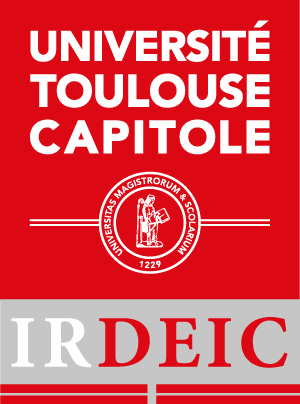DESCRIPTION
Since the start of the 1990s, the majority of European countries have steadily introduced ‘green’ tax reforms; however, they have been at very different paces and scopes.
After a stuttering but somewhat promising start, France has continuously come up short in enacting green taxes.
This programme fits in perfectly with the ethos of the IRDEIC. It looks at the international context founded on the Kyoto Protocol’s ‘rights to pollute’ as well as the European Economic Area which has adopted several measures for using taxes as a means to protect the environment or, more precisely, to combat pollution (e.g. eco-tax on heavy goods vehicles).
The French case only makes sense within a comparative law approach given that progress by individual states has been varying.
An in-depth study in this area is of high interest due to its future consequences and the several areas of uncertainty in relation to its theoretical foundation and the coherence of actual achievements
Given the links between the environment and health, this issue also falls within a wider perspective led by the IRDEIC over several years: the human right to physical integrity.
On this issue, the IRDEIC has carried out several studies on the community right to health.
In another context, environmental protection has for several decades provoked a reassessment of a tax system that can contribute, at the European level, to better protection of citizens.
However, taxes fall within a Member State’s sole competence, unlike the issue of health.
Such a study should investigate the adopted European norms thorough a detailed comparison of national legislation in order to identify the principles and achievements of a nascent legal subject.
In this context, the study focuses on three objectives:
Firstly, operational, which entails the development of tools to analyse legal alternatives to taxes in the fight against pollution.
Secondly, the suitability of environmental law principles must be fleshed out so as to structure the still-fluid boundaries of environmental tax law.
This objective is fundamental for identifying the specific existence of an environmental tax law, which has very often been relegated to a simple case of tax interventionism in current studies.
The third objective is to measure the extent to which a single environmental tax policy could assist EU Member States in protecting the environment, and thus describe a unifying model under the aegis of the European Union.
TOPICS
A comparative study of the legal, tax and economic tools for protecting the environment:
The carbon emissions markets in the European Union;
The influence of economic analyses on legal choices;
The comparative suitability of different tools according to results recently obtained (or otherwise).
The existence of an independent environmental tax law:
The area of environmental tax law;
The principles of environmental tax law: integration, comparison and differentiation from the traditional principles of environmental law;
A comparative analysis of the principles of environmental law (especially the ‘polluter pays’ principle) and the traditional principles of tax law (equality principle);
The definition of a specific environmental tax law.
Environmental tax law at the EU level:
Non-French models (notably, Scandinavian countries);
Achievements and demarcation of a harmonised European framework;
Achievements in the French context.
METHODOLOGY
This study is carried out in partnership with the Aix-en-Provence CERFF (in particular, Céline Viessant).
The research is supported by a network of European university laboratories working on the same topics.
It also provides the opportunity to establish cross-disciplinary cooperation with other Toulouse laboratories of the PRES (economists, political scientists, etc.) and private law laboratories studying environmental law through the prism of company regulation by the state.
The study should enable a collaboration covering several levels:
Various legal fields with input from tax experts, financiers and EU specialists;
Legal and economic analysis of consequences;
A comparison of analyses from researchers and practitioners.
RESEARCH COMPLETION
The works will be produced in two stages:
A publication focused on French law integrating the larger issue, thereby facilitating the assessment of a field still in development.
A symposium (lasting one or two days) with a presentation of the topics by French and foreign lecturers and practitioners.
Depending on the extent of the network, the different areas of the study may result in conferences or seminars, which will lead to publications.
TEAM
The project is backed by the CERFF and sustained through collaboration with other IRDEIC teams.
The research is carried out through collaboration between two reputable research centres in the area of tax and finance, i.e. members of the CERFF and of Aix-en-Provence CEFF.
The project is coordinated by Fabrice Blin.




 Print
Print



